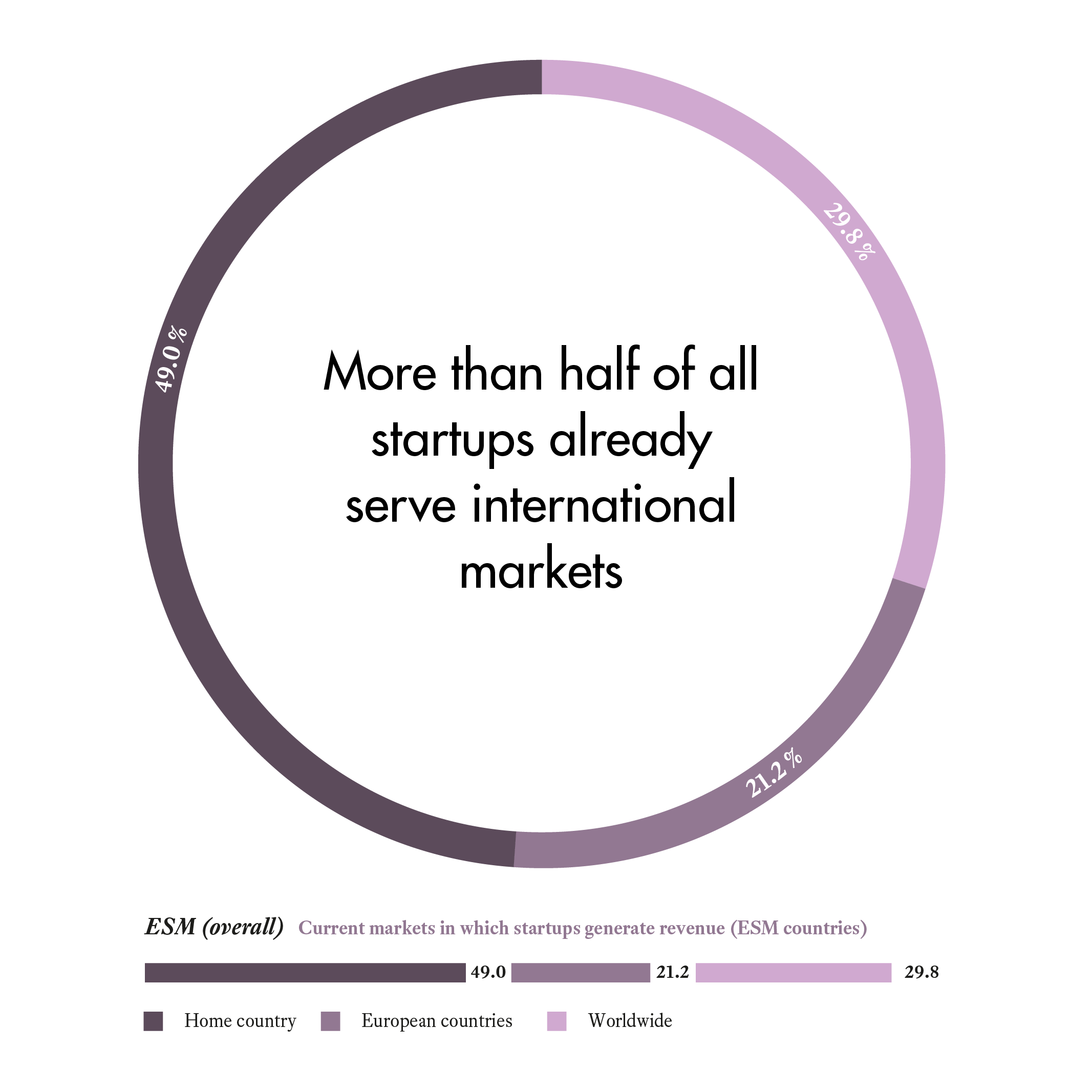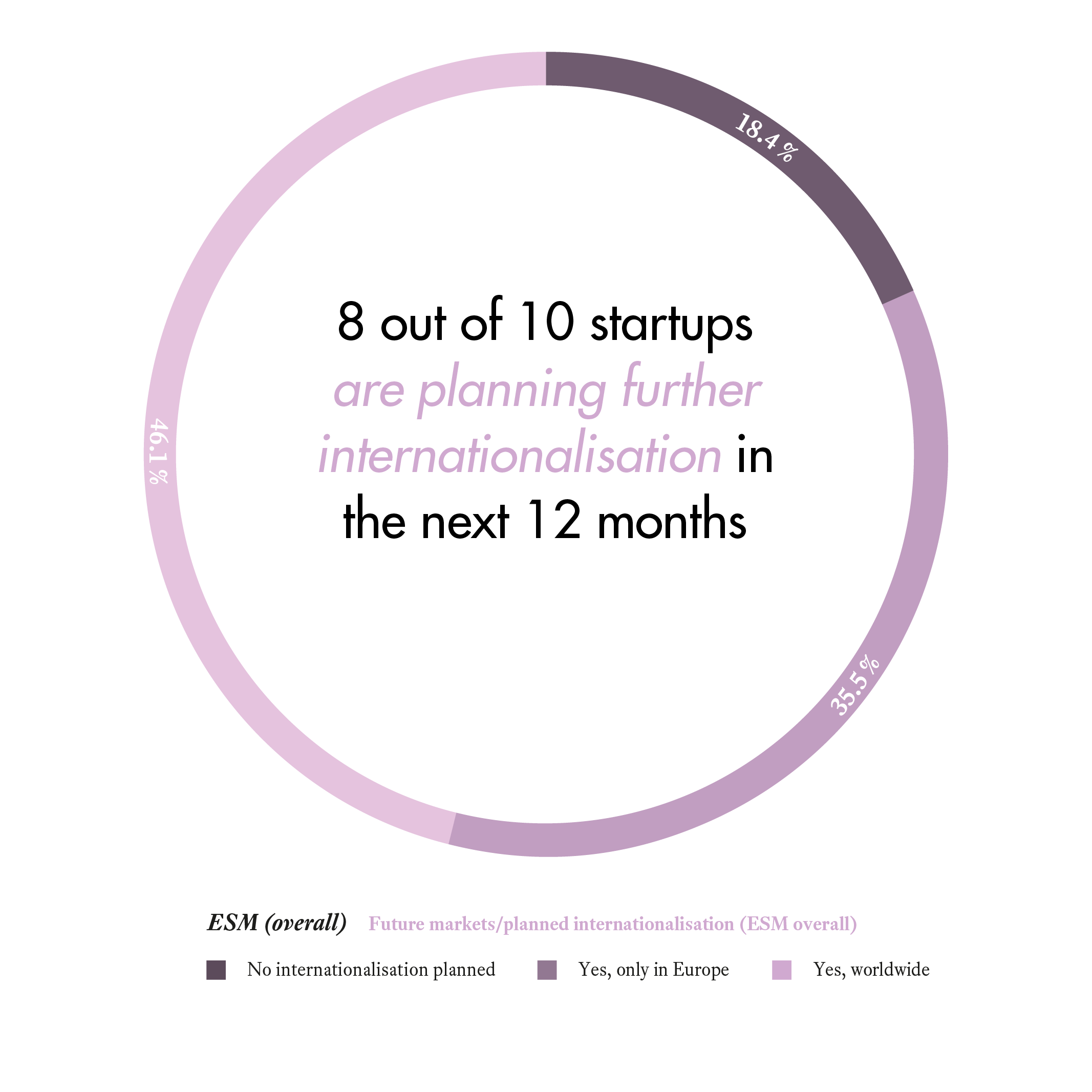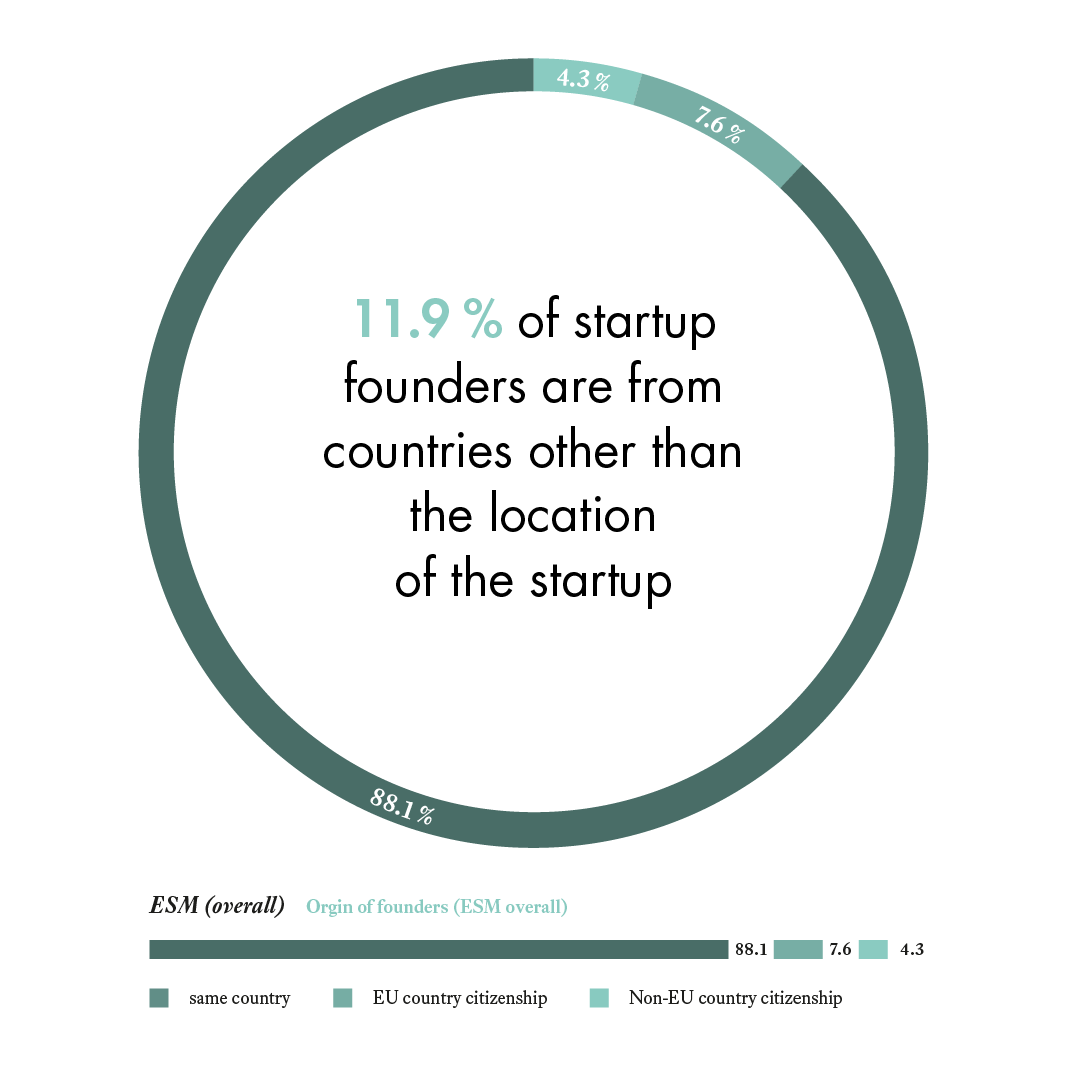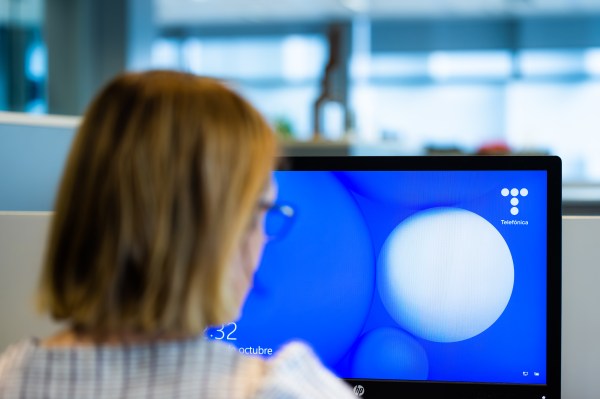Startups are of crucial importance for the digital agenda in Europe. How they are? Who do they employ? What are your expectations? The answers are in the first European Startup Monitor (ESM), introduced by The German Startups Association (GSA).
The comparable data of the ESM was evaluated in cooperation with startup-representatives of 15 different European Union (EU) Member States and Israel. More than 2,300 startups were surveyed, representing over 31,000 employees, to acquire comparable data for the European startup ecosystem. The ESM has been published with the support of KPMG AG, Telefónica Germany und Google Germany GmbH.
The ESM gives transparency to the European startups, identifies country-specific and European-wide challenges, and underscores the growing influence of these young enterprises to the European economy with valid data:


– Most startups are founded by a team of entrepreneurs with a median age range between 25 – 34 years
– 14.7% of the startup founders are female
– 11.9% of startup founders and 31.6% of the employees are from countries other than the location of the startup
– 50% of the European startups act internationally already and 8 out of 10 plan to expand further within the next 12 months
– More than 90% of startup founders are satisfied with their current business situation with 72% predicting a positive business development in the future
– The biggest challenges for European startups are sales/customer acquisition, raising capital, and product development
– On average the individual European startup collected 2.5 million Euros and aims to collect further 3.3 million Euros in the next 12 months
Guenther Oettinger, the European Commissioner for Digital Economy and Society, said. “Our proposal to simplify, adjust and modernise the European Union’s rules for doing cross-border business in the EU is aimed at making it easier for the digital domain to flourish. It is important for entrepreneurs, businesses, investors, and policy makers alike to be able to measure success, in order to focus efforts where they have the biggest impact. The European Startup Monitor will allow for a systematic overview of where innovation and growth happens in the digital economy, and how policies should be shaped to help. We need simpler and faster, we need to observe and measure, we need to intervene and add value.”

Florian Noell, Chairman of the GSA emphasised the significant findings from the ESM, which illustrates the increasing importance of the European startups: “The European startups are growing rapidly, they are creating jobs and of high importance for the future competitiveness of the European Union, in particular within the digital economy. Already after the first 2.5 years, they have 13 employees on average and plan to hire 7 more in the next 12 months. Furthermore, the ESM shows that the European startups are major innovation drivers: Two third of the surveyed startups said, that they would recognise their own products, services and/or business models as innovative. With this novelty they ensure our future wealth, they are SMEs and global players of tomorrow.
Tobias Kollmann, scientific supervisor of the ESM and professor for E-Business and E-Entrepreneurship at the University Duisburg-Essen: “Startups are of crucial importance for the digital agenda in Europe. In order to support them in the best possible manner, we need proven scientific findings about their development in Europe. Therefore, the ESM is a first basis for decision-making for European policy-makers.“
>> More information: http://europeanstartupmonitor.com/











